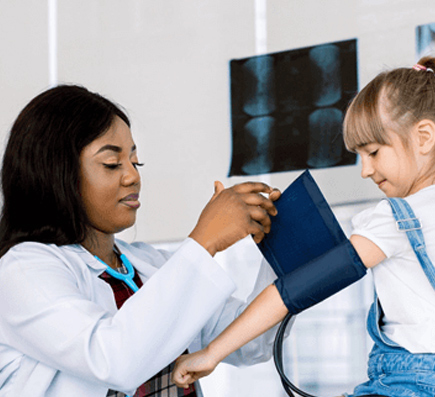Investing in Women’s Health – IWD Special
March 12th, 2024 WRITTEN BY Manasi Kaushik - Marketing Manager Tags: HR & Marketing, international women's day, prevention, women, women's health

Written By Manasi Kaushik, Marketing Manager
On Friday, March 8, 2024, I had the good fortune of attending a session on Breast Cancer Awareness organized by Fresh Gravity to commemorate International Women’s Day (IWD). The reason I use the words “good fortune” is because after listening to the impactful session by Dr. Vaidehi Marathe – an Obstetrician, Gynecologist, and Infertility Specialist – I realized that the majority of women in India still live with minimum-to-no knowledge about how to take care of their health, and even when they know something is wrong, the fear of judgment/shame makes them postpone getting themselves checked till it’s too late.
The fact that many women put their needs and health last is something I have seen and experienced firsthand with friends and family but listening to Dr. Vaidehi recount multiple incidents cemented my belief in the fact that adversities can be avoided if the right preventative measures are taken at the right time. With this in mind, I wanted to share some valuable insights that Dr. Vaidehi bestowed upon the Fresh Gravity women –
FACTS
- The most common cancers among women
- Breast Cancer
- Cervical Cancer
- Colorectal Cancer
- Uterine Cancer
- Lung Cancer
- Factors that increase the risk of breast cancer
- Family history i.e., if more than one woman in your family – your mother, sister, maternal grandmother – had cancer, it might increase your chances of getting it too
- Personal History – if you have had breast cancer or a breast disease (such as fibrocystic breast disease) you might be at a higher risk of getting breast cancer
- Lifestyle – a sedentary lifestyle causes many illnesses, not just cancer. If you do not do it already, make sure you incorporate some form of exercise in your daily routine. Whether it is a 30-minute walk, a yoga class, Pilates, swimming, or working out at the gym, is up to you.
- Pro tip: make sure you choose a form of exercise that you enjoy; it will help you sustain it
PREVENTATIVE MEASURES
- Monthly Self Breast Examination
- Self-Breast Examination or SBE is a way for women to examine their breasts and check for lumps. A monthly practice of this will make the examiner more susceptible to changes or growing lumps. This is important because early detection of any kind of abnormality is easier to treat. Another important thing to note here is that most lumps detected during the SBE are not cancer.
- WHO should do it: All women above the age of 20
- WHEN to do it: Women in their reproductive years should do the SBE a week after their menstrual cycle is over and women who have irregular periods or are menopausal can fix one date every month to do the Self Breast Examination.
- HOW to do it: There are two ways to do the exam – look and feel. Here is a short video by Dr. Vaidehi demonstrating the perfect way to do an SBE
- Self-Breast Examination or SBE is a way for women to examine their breasts and check for lumps. A monthly practice of this will make the examiner more susceptible to changes or growing lumps. This is important because early detection of any kind of abnormality is easier to treat. Another important thing to note here is that most lumps detected during the SBE are not cancer.
- Get HPV vaccine to prevent cervical cancer
- According to this report, cervical cancer ranks as the second most frequent cancer among women in India and the second most frequent cancer among women between 15 and 44 years of age. More than 99% of cervical cancer is caused by Human Papillomavirus or HPV. BUT did you know that there is an HPV vaccine that can prevent this disease? There are three types of HPV vaccines that women can take, however, please check with your gynecologist which vaccine is right for you and when you should take it –
- Cervavac covers four virus strains (Type 6, 11, 16, 18) and is for females between the ages of 9-26
- Gardasil 4 prevents four virus strains (Type 6, 11, 16, 18) and is for women between the ages of 9-45
- Gardasil 9 covers nine virus strains (Type 6, 11, 16, 18, 31, 33, 45, 52, and 58) and is for females between the ages of 9-26
- According to this report, cervical cancer ranks as the second most frequent cancer among women in India and the second most frequent cancer among women between 15 and 44 years of age. More than 99% of cervical cancer is caused by Human Papillomavirus or HPV. BUT did you know that there is an HPV vaccine that can prevent this disease? There are three types of HPV vaccines that women can take, however, please check with your gynecologist which vaccine is right for you and when you should take it –
- Yearly check-ups
- As they say, prevention is better than cure. Schedule yearly check-ups for yourself so that it becomes part of your yearly routine, which can help you avoid unexpected/unwelcome surprises. It is said there is power in numbers, so one way to stick to this practice is to team up with friends and/or family and get the checkups done together. According to Dr. Vaidehi, here are some tests that you should do every year –
- Complete blood count test, blood sugar, Lipid Profile, kidney and liver function test, Serum Iron test, Vitamin D3 and Vitamin B12, and Thyroid Stimulating Hormone (TSH) test
- Pap smear
- Sonography for women under the age of 40
- Mammography for women above the age of 40
- As they say, prevention is better than cure. Schedule yearly check-ups for yourself so that it becomes part of your yearly routine, which can help you avoid unexpected/unwelcome surprises. It is said there is power in numbers, so one way to stick to this practice is to team up with friends and/or family and get the checkups done together. According to Dr. Vaidehi, here are some tests that you should do every year –
Please remember that everybody is unique and so their needs will be unique too. Therefore, consult your gynecologist about what your individual needs might be, and let this blog serve as a reminder for you to take your health seriously.
Drawing from this year’s IWD theme, ‘Invest in Women: Accelerate Progress,’ invest in your self-care, which includes physical, mental, and emotional health to accelerate progress at an individual level and beyond. Lastly, remember that there may be a gazillion things that are high on your priority list, but your health should always be #1!
P.S. If you want to learn more about women’s health, please follow Dr. Vaidehi on Instagram @ gynaesakhi.
Please share this with other women who would benefit from this information!
.png)







